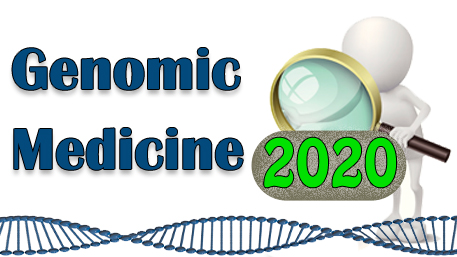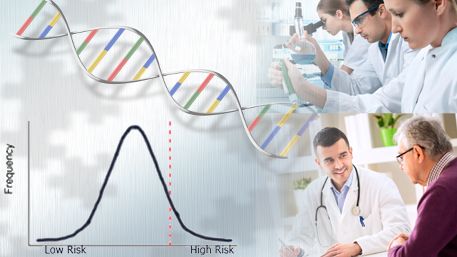Search Results
10 results for public health genomics
Genomic Medicine Year in Review 2020: Population-wide Implementation Research Has Arrived

Advances in genomic medicine continue at a steady pace. In a December 2019 paper, The Genomic Medicine Working Group of the National Advisory Council for Human Genome Research of the National Human Genome Research Institute (NHGRI) identified 10 papers with the most significant advances in the field. In our 2019 end of the year blog. we featured 5
Posted on byGenomic Medicine is Here: We Need More Data on Implementation and Outcomes

The use of genomic tests in clinical research and practice continues to accelerate in the United States and around the world. For almost a decade, the Genetic Testing Registry (GTR) at the National Institutes of Health has continued to track the growth and development of genomic tests. As of October 28, the GTR lists 76,835
Posted on by 1 CommentAre We Ready for Population Screening for Hereditary Hemochromatosis?

Hereditary Hemochromatosis (HH) is an inherited iron storage disorder in which the body builds up too much iron, damaging tissues and organs. In most people, HH is caused by two copies of a specific change (mutation) in the HFE gene which is most commonly found in people of European ancestry. In the United States, over
Posted on by 1 CommentIs it Time to Integrate Polygenic Risk Scores into Clinical Practice? Let’s Do the Science First and Follow the Evidence Wherever it Takes Us!

In case you have not been paying much attention to genomic medicine research or social media coverage, you might have missed a clear uptick in the past couple of years on the value of polygenic risk scores in clinical practice and population screening. (see examples here, here, here, and here) Polygenic risk scores (PRS) summarize
Posted on by 1 CommentSatisfying Popular Curiosity: What Is Genetic Counseling?

As 2018 comes to a close and the data comes rolling in, it can officially be said that “genetic counseling” was the most popular search term in the Public Health Genomics Knowledge Base (PHGKB). Genetic counseling is one of the fastest growing careers in the country, with a growth rate of 29% since 2016, according
Posted on byWhen Should You Be Screened for Colorectal Cancer?

Starting at the right time saves lives. People with a family history of CRC may need to start much earlier. Doctors and public health professionals strive to live by the creed “First, do no harm” but often wrestle with difficult choices, including when and how often screening tests should be conducted. Effective prevention of colorectal
Posted on byCan Genetic Risk Scores Score a Win for Precision Prevention? Time and Rigorous Studies Will Tell

In May 2018, CDC’s Office of Public Health Genomics, the National Cancer Institute’s Division of Cancer Control and Population Sciences, and the National Heart, Lung, and Blood Institute’s Center for Translation Research and Implementation Science held a special webinar titled: “Using Genetic Risk Scores in the Prevention and Control of Common Diseases: Opportunities and Challenges.”
Posted on byConsumer Genetic Testing Is Booming: But What are the Benefits and Harms to Individuals and Populations?

Initially a Niche Market for Very Few with Small Population Impact The first genetic tests directly available to consumers for health were offered in 1996. The concept, then, was both audacious and bold: the idea that individuals could explore their own human genome without the aid of a health care provider to order the test
Posted on by 3 CommentsSaving a Million Hearts: One Heart at a Time!

Cardiovascular disease (CVD), principally ischemic heart disease and stroke, remains the leading cause of U.S. deaths for men and women and all races and ethnicities in spite of major progress in its prevention and treatment. CVD is also the greatest contributor to racial disparities in life expectancy. In 2012, 120 public and private partners and
Posted on byDear John, There’s no point in waiting any longer. Let’s call it quits…

In 1999, Dr. Francis Collins, director of the Human Genome Project, provided a bold vision for what the practice of genomic medicine might soon look like. Collins described the case of a hypothetical man named “John,” a 23 year-old smoker living a decade into the future in 2010. “His substantial risk of contracting lung cancer
Posted on by 4 Comments